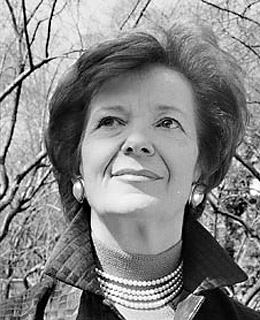
She has a judge's rectitude, a campaigner's zeal, the warmth of an old friend — and an acute sense of how to focus the global spotlight on a cause. Mary Robinson started out as a human-rights lawyer in Ireland, fighting for changes that were controversial yet, once in place, seemed obvious, like women on juries and legal contraception. Now heading the Ethical Globalization Initiative in New York, she is trying to make another radical idea commonplace: that long-lasting security in the age of terrorism will come from spreading global justice.
Robinson, 60, jumped onto the world stage as President of Ireland — the first woman, first liberal, first feminist in the job. She reached out to everyone from gays and lesbians to Ulster Protestants to the Irish diaspora. Devoid of glad-handing skills, she still won approval ratings of more than 90%. In 1997 she became U.N. High Commissioner for Human Rights and often spoke against powerful countries like China and Russia. She also assailed the U.S. over the treatment of prisoners in Guantánamo and casualties in Afghanistan, which she called "disproportionate." (Washington blocked her second term.)
She's campaigning for equitable trade with developing countries, to prod global companies to follow human-rights codes and counteract the idea that curtailing civil rights helps fight terrorism. She believes in law as a civilizing force — and has a knack for practical solutions. Brenda Fricker, an Irish actress who has known Robinson for years, says, "If you were in trouble, Mary's still the kind of person you could call up at 4 a.m. and say, 'Get me out of here!'"
From the Archive
Symbol of the New Ireland: President Mary Robinson has recharged the spirit of her fractious nation and helped make it part of a modern Europe